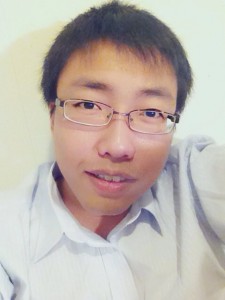Meet Geyang Mao, Statistics summer scholar
Every year, the Department of Statistics offers summer scholarships to a number of students so they can work with our staff on real-world projects. Geyang is working with Dr Ian Tuck on a project called Correlations between air pollutants. Geyang, below, explains:
“It is likely that the levels of air pollutants are somehow related in time if they arise from a common source such as vehicle emissions. Relationships between levels of pollutants could also be influenced by meteorological conditions, such as wind speed. Furthermore, the relationship may change in time as the nature of emissions changes due to technological change or emission controls.
“My research is about investigating the nature of the correlation between a number of key air pollutants, using data collected by Auckland Council and National Institute of Water and Atmospheric Research. This project mainly focuses on predicting PM2.5 from PM10 and investigating correlation between particle number concentration (PNC) and nitrogen oxides (NOx).
“PM2.5 refers to particles smaller than 2.5 micrometers, which tend to penetrate into the gas-exchange regions of the lung. They can adversely affect human health and also have impacts on climate and precipitation. It is becoming very important to measure PM2.5 level in Auckland Council’s air-quality monitoring network. However, most weather stations in New Zealand monitor just the level of PM10. It is too expensive to measure all pollutants at all times, therefore, this project will be very useful if we can establish the relationship between correlated pollutants so that concentrations of one may be estimated from concentrations of the other.
“I have just finished my third year of a Bachelor of Science/ Bachelor of Commerce conjoint majoring in Statistics, Accounting and Finance, and I plan to pursue postgraduate studies in Statistics after I graduate.
“Statistics appeals to me because of its relevance to a lot of real-world problems. Stats can be widely applied to almost every industry. It helps us to make sense of data and extract useful information from large datasets. Furthermore, Statistics provides me with many quantitative skills that are transferable across a wide range of fields and has improved my problem-solving ability significantly. I have found learning stats at the University of Auckland to be very enjoyable due to the great learning environment and friendly lecturers.
“Over the summer, I’m also doing a lot of relaxing: catching up with friends, watching movies, spending some time at the beach and playing computer games.”
Atakohu Middleton is an Auckland journalist with a keen interest in the way the media uses/abuses data. She happens to be married to a statistician. See all posts by Atakohu Middleton »

I work for the Ministry of Transport and I am interested in this work.
The answer to the questions you are looking at are very much going to depend on the site and the types of vehicles going past. It will also depend on how you apportion the source of the pollution.
I would appreciate knowing more about this project.
Iain
11 years ago
Thanks for your comment. Could you please give me your email address? My supervisor and I would like to get in touch with you.
11 years ago
Hi Ian, apologies for the late reply. I suggest you contact Ian Tuck. http://www.niwa.co.nz/people/ian-tuck
11 years ago